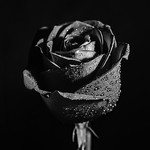
I learned the Australian folk ballad “Waltzing Matilda” so early in my elementary school years that I don’t remember very much of the life I led before it became one of those anthemic tunes that courses through my blood with ease and gladness whenever I find myself suddenly singing it in the shower or out on a bike ride in the sun-splotched innocence of a spring day.
So the genius of Eric Bogle’s “And the Band Played Waltzing Matilda” is that it uses the freewheeling joy of the original as the backdrop for a deep lamentation on the devastating losses of war. Bogle frames those losses not in the realm of great battles and territory surrendered or annexed, but in the individual persons (young men in this case) with families, friends and romances waiting for them at home, and a future that will never be realized.
The setting is World War I, perhaps the most nonsensical war of all the nonsense that lies deep ...
Read More









Recent Comments